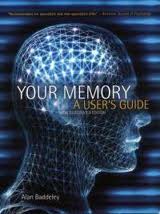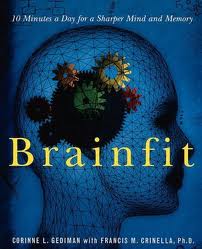Dealing With Incomplete Memories in Memoir and Family History
Biff Barnes
Almost anyone who begins a memoir or personal history project of any sort will sooner or later confront the limits of her memory. She will find herself or someone she is interviewing unable to recall the name of a person or the details of an event and that person or event is critical to the story she wants to tell.

“I attribute this to what I call the ‘overfilled filing cabinet,’’ says Fred Cicetti author of The Healthy Geezer. “As we get older, we accumulate so many memories that it’s impossible to find the ones we want.”
However, memory researchers have found that it may take some doing, but it is very possible to access those elusive memories.

The first think to remember is to relax. “Anxiety blocks memory functions,” according to Corinne Gediman and Frances Crinella in their book Brainfit. The more anxious you become, the more difficult you will find it to recall the memory you want. Relax a bit, breathe deeply and you may find that the memory comes to you later out of thin air.
If relaxation doesn’t prove to be enough, there are more active steps to pursue in recalling a partial or lost memory. Alan Baddeley, author of Your Memory: A User’s Guide advises that the elusive memory, “... may be possible to retrieve given a clue or cue.”
Retrieval cues may take a variety of forms. Some of the most effective are:
- Association or context cues – Recalling the environment in which something occurred can bring details of what happened into vivid focus. Seeing, hearing or touching something associated with the memory in some way is a wonderful memory trigger. Looking at old photographs, documents, letters, or diaries may stimulate recall. Listening to music from about the time of the event can help recapture the details of what happened.
- Scenario Cues – The gaps in a memory may be filled in when a person visualizes the scene of an event, the people who were present and the location where it happened.
- Event or Chronological Cues – By creating a timeline of what was going on at approximately the time a person is trying to recall, the memory she is attempting to access may come into focus.
- Word Association Cues – Remembering favorite sayings or speech patterns of a person involved in a memory can aid the recall of details of a specific event.
- Smell Cues – It is amazing how much can be triggered by remembering a smell. Often it’s enough to call up details of time, place and events.
- People Cues - Talking to someone who might also know the people or events to be recalled may release a flood of memories. These conversations need not be focused on trying to capture a particular detail, but serve to get a person thinking about a time in the past and letting memories come back naturally. None of these cues will necessarily produce instantaneous results. Memories take time to percolate. As Alan Baddeley put it, “There is an apparent unconscious process whereby information ‘pops up’ for no obvious reason.”
If none of this works, go for a strenuous walk, take a long run or spend some time on the treadmill. Aerobic exercise produces endorphins, hormones in our brains following exercise, which can elevate one’s mood and sharpen one’s memory.